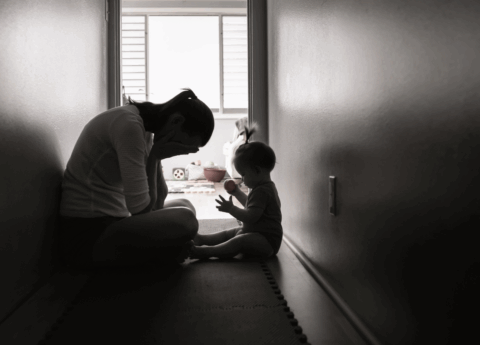Nationally, the racial disparities that exist in the criminal justice system are well-known, with African Americans being overrepresented in prisons and jails. These racial disparities are also present in Kentucky’s criminal justice system, which is one reason why it is so important the state move forward with needed reforms.
Despite the majority of inmates in Kentucky being white, African Americans are disproportionately represented in the state’s criminal justice system. African Americans are eight percent of the adult population but:
- 14.4 percent of all arrests;
- 15.7 percent of all arrests for serious crimes;
- 22 percent of Kentucky’s prison population;
- 30 percent of the confined juvenile population.
According to the Department of Public Advocacy, the rate of imprisonment is: 460 white inmates for every 100,000 whites in the population and 1,479 African Americans for every 100,000 African Americans in the population. In other words, African Americans in Kentucky are 3.2 times more likely to be in prison than whites.
Causes and Implications of Disproportionate Representation in Criminal Justice System
Rather than one racial group simply being more likely than another to commit crimes, the causes of the racial disparities in the criminal justice system are much more complex. Research on the topic points in part to policies and practices such as those related to the “war on drugs,” as well as implicit bias and stereotypes in decision-making, that have a disparate impact on African Americans. For example, even though whites and African Americans use illegal drugs at roughly the same rate, nationally African Americans are nearly 4 times as likely as whites to be arrested for drug offenses and 2.5 times as likely to be arrested for drug possession. African Americans are more likely to be searched by police after being stopped, more likely to be detained pre-trial, which makes it more likely that they will be convicted and sentenced to longer prison terms, and more likely to be charged by prosecutors under state habitual offender laws. On top of that, prosecutors have been known to exclude African Americans from jury service.
Other drivers of these racial disparities in the criminal justice system are structural disadvantages in communities of color that can lead to higher rates of offending and arrest.
These patterns mean that African American individuals, families and communities are experiencing the collateral consequences of incarceration at greater rates — including children having an incarcerated parent, the lack of economic opportunities resulting from a criminal background and disenfranchisement from voting.
Racial Inequities in Kentucky Criminal Justice Data
Kentucky’s Public Advocate has highlighted data that indicates some policies and practices may contribute to racial inequity in Kentucky’s criminal justice system.
African American juveniles may be more likely to face more serious charges for similar crimes. As seen in the table below, 63 percent of juvenile public defender clients charged with 1st degree robbery in 2016 are African American, compared to just 35 percent who are white. For 2nd degree robbery, 54 percent are African American. However, for the much lesser charge of theft by unlawful taking, just 22 percent are African American and 75 percent are white.
Racial Breakdown of Juvenile Prosecutions in Which Public Defenders Provided Representation
Source: Fiscal year 2016 data from the Department of Public Advocacy. The sentences listed here are for adults but are included in order to give a sense of how these charges vary in seriousness of penalties. However, juveniles — even those tried as adults — do not necessarily receive these sentences.
According to the Public Advocate, this data raises “disturbing questions of racial disparity,” including: Are African American juveniles who steal more likely than white juveniles to be charged with robbery instead of theft?
Department of Public Advocacy data also shows that African American juveniles are more likely to be tried as adults in cases where public defenders provided representation — 53 percent of these juvenile offenders in 2014 and 2015 were African American and 44 percent were White. This trend is related to African American offenders being more likely to receive a more serious (and transferable) charge. More than one in four of these cases originated in Fayette County, where 23 (or 88.5 percent) of the transferred juveniles were African American and just one (3.8 percent) were White. Half of those transferred were charged with Robbery 1st Degree.
In addition, whites have a greater tendency to face the lesser charge of heroin possession as opposed to trafficking compared to African Americans. In heroin prosecutions of Kentucky adults in fiscal year 2016, 96 percent charged with possession are white while those charged with the much more serious charge of trafficking are 22 percent to 51 percent African American depending on the specific charge (i.e., Class D, Class C or Class B Felony). The state’s Public Advocate poses the following question regarding this data: Are white addicts being charged with possession, meaning they are eligible for drug court, deferred prosecution, pre-trial release and possible expungement, while black addicts are more likely to be charged with trafficking? “Put bluntly, is there more compassion felt for white addicts that is not felt for black addicts?”
Reforms That Promote Greater Equity
Reforms to Kentucky’s criminal justice system, including those being discussed by the recently formed state Criminal Justice Policy Assessment Council (CJPAC), can help reduce such racial disparities. These include common sense reforms that would reduce mass incarceration. Representative Yonts’s proposed legislation in the 2016 session would have enacted some of these changes — for instance, making low level misdemeanors a violation and making low level felonies a misdemeanor. The bill is expected to be reintroduced in 2017.




